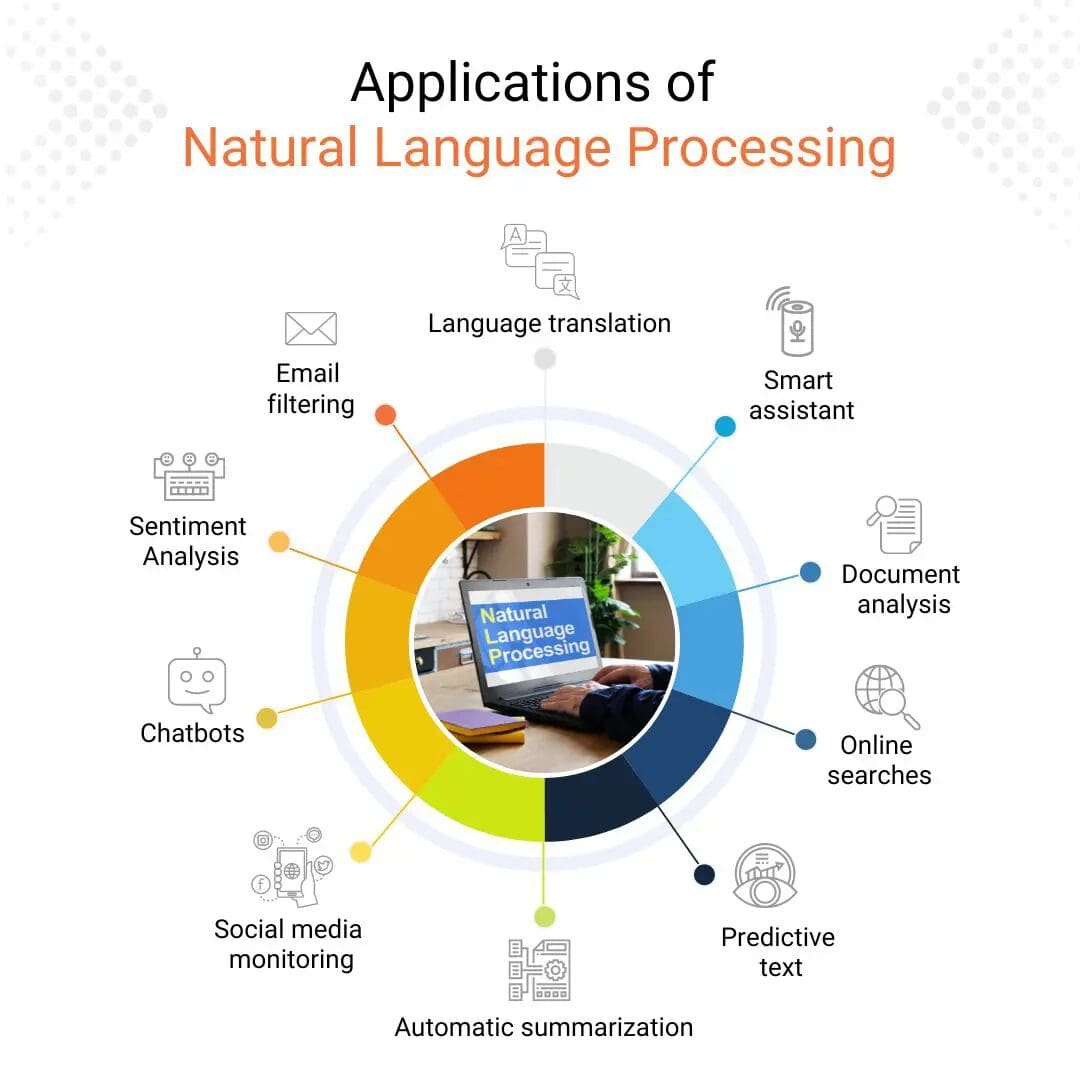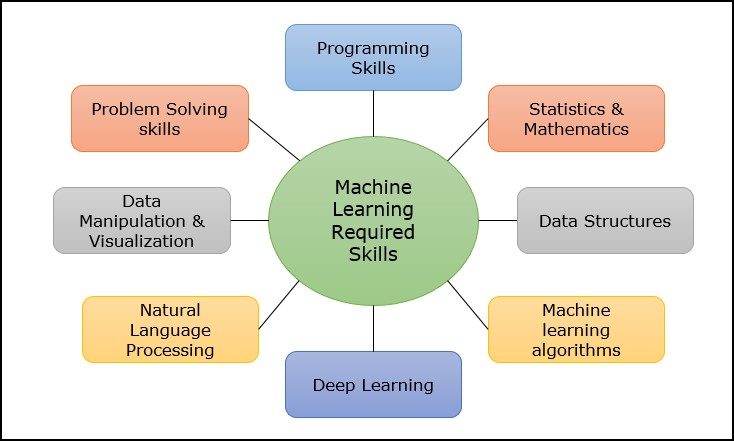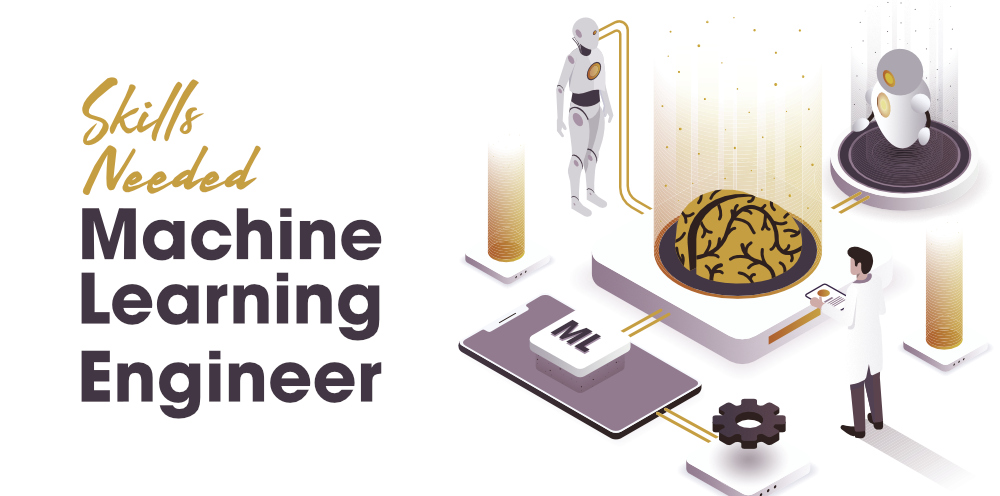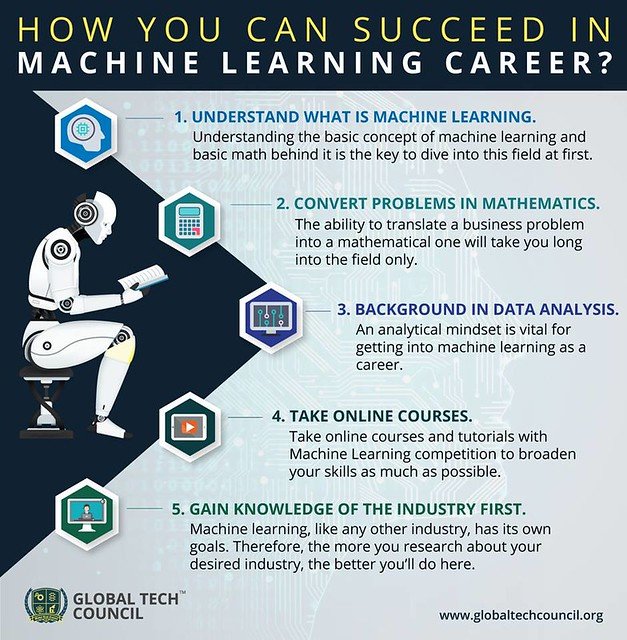
Introduction
Overview of Machine Learning
Machine learning is more than just a buzzword; it represents a revolutionary shift in how we process information and make decisions. At its core, machine learning involves the use of algorithms that allow computers to learn from data and improve their predictions over time. Imagine teaching a child to recognize different animals: by showing them various pictures and saying the name of each animal, they begin to learn and understand what differentiates a cat from a dog. In a similar way, machine learning models ‘learn’ from data to enhance their accuracy and effectiveness.
Key aspects of machine learning include:
- Supervised Learning: Learning from labeled data.
- Unsupervised Learning: Finding patterns in unlabelled data.
- Reinforcement Learning: Learning through trial and error.
Importance of Machine Learning in the Career Landscape
In today’s job market, machine learning skills are increasingly valuable. Industries ranging from healthcare to finance are harnessing the power of machine learning to drive innovation and efficiency. For those looking to build a career in this field, the opportunities are plentiful.
Some benefits of pursuing a career in machine learning include:
- High demand for skilled professionals: Companies are actively seeking talent to develop machine learning solutions.
- Diverse career paths: From data scientists to AI researchers, the options are vast.
- Attractive salary packages: Competitive compensation is a hallmark of this field.
For anyone considering a career in machine learning, the future is bright, and the time to start is now!

Essential Skills for Machine Learning Careers
Understanding of Statistics and Probability
A strong foundation in statistics and probability is crucial for anyone attempting to make a mark in machine learning. These mathematical tools enable professionals to understand data distributions, interpret results, and validate models effectively. For instance, when assessing a model’s performance, knowing how to apply concepts such as p-values and confidence intervals can help in making informed decisions.
Proficiency in Programming Languages like Python
Python has become the go-to programming language for machine learning enthusiasts. Its simplicity and robustness allow practitioners to implement complex algorithms without getting bogged down in verbose code. Libraries like TensorFlow, Scikit-learn, and Pandas make it a powerful choice for data manipulation and model building. Personal anecdote: many budding data scientists find that their productivity skyrockets when they master Python.
Knowledge of Data Preprocessing and Cleaning
Before diving into model training, knowing how to preprocess and clean data is paramount. Real-world data is often messy and filled with inconsistencies. Skills in handling missing values, duplicate records, and outliers can set candidates apart. Techniques such as normalization and feature scaling can significantly impact model outcomes.
Expertise in Machine Learning Algorithms
Familiarity with various machine learning algorithms—such as decision trees, support vector machines, and clustering methods—is essential. Understanding the strengths and weaknesses of these algorithms allows professionals to choose the best approach for specific problems.
Experience with Data Visualization Tools
Data visualization is an art and a science. Tools like Matplotlib and Seaborn help in translating complex data insights into easy-to-understand visuals, enabling better communication of findings. Proficient data visualization enhances the storytelling aspect of data, making presentations more impactful.
Understanding of Neural Networks and Deep Learning
Lastly, knowledge of neural networks and deep learning is becoming a game changer in the machine learning arena. Understanding architectures like convolutional neural networks (CNNs) and recurrent neural networks (RNNs) opens up advanced opportunities in computer vision and natural language processing. This area is particularly exciting for those eager to work on cutting-edge technologies.
Overall, building a career in machine learning requires a blend of technical skills and a thorough understanding of the underlying principles. Continuous learning and practice in these areas will significantly enhance one’s marketability in this dynamic field.

Educational Pathways and Certifications
Pursuing a Degree in Computer Science, Mathematics, or Data Science
Embarking on a career in machine learning often begins with getting a solid educational foundation. Pursuing a degree in fields like computer science, mathematics, or data science equips you with the essential tools and theoretical concepts needed to thrive. For instance, computer science programs typically cover programming, algorithms, and data structures, while mathematics degrees delve into statistical modeling and linear algebra.
- Key Benefits of a Degree:
- Provides a structured learning environment.
- Facilitates networking opportunities with peers and professors.
- Offers access to resources and research opportunities.
Enrolling in Online Courses and Specializations
In addition to formal degrees, enrolling in online courses can significantly enhance your skills and knowledge. Platforms like Coursera, edX, and Udacity offer vast selections of courses tailored for machine learning enthusiasts. Personal stories abound of individuals who transitioned careers by dedicating a few hours a week to structured online learning.
- Popular Course Topics:
- Machine Learning Foundations
- Advanced Topics in Deep Learning
- Data Analysis and Visualization Techniques
Obtaining Certifications from Platforms like Coursera and Udacity
Investing time in certifications can be a game changer. Acquiring certifications from reputable platforms not only showcases your skills but also adds credibility to your resume. For example, Coursera offers a Machine Learning Specialization created by Andrew Ng, which has been pivotal for many looking to enter the field.
- Benefits of Certifications:
- Validates your expertise in specific areas.
- Helps in standing out in a competitive job market.
- Often includes hands-on projects, enhancing practical experience.
In summary, whether through traditional degree programs or modern online courses, aspiring machine learning professionals have multiple pathways to build their knowledge and credentials. Continuous learning and certification can significantly bolster one’s qualifications and readiness to tackle real-world challenges in this exciting field.

Practical Experience and Projects
Participating in Kaggle Competitions
After acquiring foundational knowledge in machine learning, one of the best ways to gain practical experience is through participating in Kaggle competitions. Kaggle is a platform where data enthusiasts can compete to solve real-world problems using data science. Many newcomers have successfully transitioned into full-time roles after gaining visibility from their Kaggle profiles.
- Advantages of Kaggle Competitions:
- Exposure to real-world datasets.
- Opportunities to experiment with various algorithms.
- Community-driven feedback and collaboration among participants.
Building a Machine Learning Portfolio
Creating a solid machine learning portfolio is vital for showcasing your skills and projects. Think of your portfolio as your personal brand in the data science world. Start by documenting diverse projects that span different facets of machine learning, such as predictive modeling, data preprocessing, and deep learning applications.
- Key Elements of a Strong Portfolio:
- Diverse project types (e.g., classification, regression).
- Well-documented code and clear explanations.
- Case studies detailing your problem-solving approach and results.
Collaborating on Open-Source Projects
Collaborating on open-source projects is another excellent way to gain hands-on experience. Platforms like GitHub host numerous open-source machine learning projects where you can contribute. Not only does this help you learn, but it also allows you to connect with seasoned professionals in the field.
- Benefits of Open-Source Collaboration:
- Networking opportunities with experienced developers.
- Gaining understanding of the software development lifecycle.
- Contributing to projects with real impact in the community.
Overall, practical experience gained through platforms like Kaggle, and building an impressive portfolio while collaborating on open-source projects can significantly enrich your machine learning journey. These actionable steps will foster growth and help you stand out in a competitive job market.

Networking and Professional Development
Attending Machine Learning Conferences and Meetups
After building practical experience through projects, the next step is to expand your network by attending machine learning conferences and meetups. These events are goldmines for learning about the latest trends and technologies in the field. I remember attending a local machine learning meetup where I got the chance to engage with experts and even present my work; it was a game-changer.
- Benefits of Attending Conferences:
- Exposure to groundbreaking research and developments.
- Opportunities to ask questions and connect directly with speakers.
- Networking with like-minded individuals, which can lead to collaborations.
Joining Online Communities and Forums
In addition to in-person events, joining online communities and forums can provide ongoing learning and networking opportunities. Platforms like Reddit, LinkedIn groups, and specialized forums like Towards Data Science offer spaces where you can share insights, ask questions, and find support.
- Advantages of Online Communities:
- Access to a diverse pool of knowledge and perspectives.
- Immediate feedback on your questions or projects from experienced members.
- Opportunities to share your own expertise or findings, building your online presence.
Engaging with Industry Experts and Mentors
Engaging with industry experts and seeking mentors can provide invaluable guidance as you navigate your career. Connecting with professionals on LinkedIn or during events can lead to mentorship relationships that offer insight into career development, technical advancements, and the job market.
- Benefits of Mentorship:
- Personalized advice tailored to your career goals.
- Insight into industry best practices and pitfalls.
- A supportive sounding board for your ideas and projects.
In summary, networking and professional development through conferences, online communities, and mentorship can significantly enhance your journey in the machine learning field. The connections and knowledge gained through these avenues can be transformative, paving the way for career growth and opportunity.

Job Search and Career Growth
Crafting a Strong Resume and Portfolio
With a solid foundation of practical experience and networking under your belt, it’s time to turn your attention to the job search. Crafting a strong resume and portfolio is essential in making a lasting impression on potential employers. Your resume should not only outline your educational background and work experience but also highlight specific machine learning projects and relevant skills.
- Key Elements of a Strong Resume:
- Clear and concise format, highlighting major achievements.
- Specific examples of projects—what technologies you used and the outcomes.
- Tailored skills section focusing on machine learning competencies.
Additionally, your portfolio should showcase diverse projects that exemplify your strengths and creativity in problem-solving.
Preparing for Machine Learning Interviews
Once you attract interest from employers, preparation for machine learning interviews becomes crucial. Interviews may include technical questions on algorithms, coding challenges, and even case studies. It’s essential to brush up on both theoretical knowledge and practical applications.
- Tips for Interview Preparation:
- Practice common algorithms and their applications.
- Work through coding challenges on platforms like LeetCode.
- Prepare to discuss your past projects, focusing on challenges you faced and your problem-solving approach.
Advancing Career Opportunities in the Field
As you progress in your machine learning career, continually seeking to advance your opportunities is vital. Consider pursuing specialized certifications or advanced degrees. Staying updated with industry trends and advancements can also open doors to new roles, like AI specialist or data engineer.
- Strategies for Career Advancement:
- Set clear career goals and seek feedback from mentors.
- Attend webinars and workshops to enhance your skill set.
- Network within your organization or industry to learn about potential promotions and new roles.
By carefully crafting your resume and portfolio, preparing for interviews diligently, and actively seeking career advancements, you’ll position yourself strongly in the competitive field of machine learning. Each step you take creates new opportunities for growth and success.

Conclusion
Recap of Key Skills for Machine Learning Career Success
As we wrap up this journey through building a career in machine learning, it’s vital to reflect on the key skills that can propel you toward success in this field. From understanding statistics and programming in Python to mastering data visualization and machine learning algorithms, each competency plays a crucial role.
Here’s a quick recap of essential skills:
- Statistics and Probability: Understanding data distributions and validation.
- Programming Proficiency: Mastery of languages like Python to implement algorithms.
- Data Preprocessing: Skills in cleaning and preparing data for analysis.
- Machine Learning Algorithms: Familiarity with various approaches and their applications.
- Data Visualization: Ability to articulate insights through visual representation.
- Neural Networks and Deep Learning: Knowledge of advanced techniques for complex problems.
Encouragement for Continuous Learning and Growth
In this ever-evolving field, continuous learning is non-negotiable. Industry trends change rapidly, and technologies advance at breakneck speed. Embrace these changes by seeking out new courses, attending workshops, and participating in community discussions.
Take it from those who’ve walked the path: the journey in machine learning is not just about acquiring skills, but growing and adapting along the way. Celebrate small victories and learn from failures, as each step adds to your experience.
Remember, the key to a fulfilling career in machine learning lies in staying curious and committed to lifelong learning. Your passion and perseverance will open doors to endless opportunities, so keep pushing boundaries and exploring new horizons!

